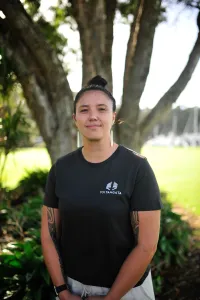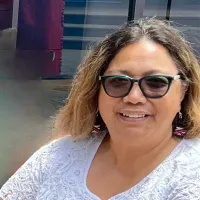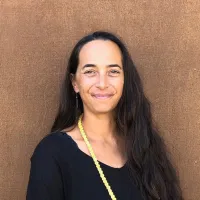Te Korowai Pūtahi Manawa
Te Korowai Pūtahi Manawa is a research support programme dedicated to community-led, kaupapa Māori research projects on heart health. Recipients demonstrate passion and a well-defined purpose, are embedded in the community they are researching with, and have a commitment to making a positive impact. The programme provides research and financial support.
2025 - 2028
Ngākau ora: The connection of storytelling & heart health
Toi Tangata
Amount Awarded: $250,000
Ngākau ora aims to support Māori innovators to write, publish, and share their own stories from their own voices, in their own words. Too often, whānau are asked to share their mātauranga for someone else’s research or report. This project flips that narrative: Instead of being written about, we want to support our whānau, kaimahi, and community leaders to become the authors of their own narratives.
Through a series of online workshops, writing retreats, and one-on-one mentoring, this project will create a safe, supportive, and empowering environment for both experienced Māori researchers and emerging writers to strengthen their writing skills and confidence. Central to this is a tuakana-teina approach, fostering intergenerational relationships to uplift Māori storytellers and researchers at all levels.
Central to this project is ngākau ora; healing and strengthening the heart through storytelling.
Writing can be a deeply reflective and healing act, allowing people to process, honour, and celebrate their kaupapa in ways that nourish wairua and hauora.
To bring this vision to life, Toi Tangata is developing an Indigenous wellbeing journal. On this digital platform, kaupapa Māori research and community-led initiatives can be published side by side. Whether focused on kai sovereignty, hauora, korikori, or mātauranga Māori, the journal will reflect the depth of Māori-led innovation across the motu.
Research Team:
Professor Anne-Marie Jackson (Mentor)
Dr Gianna Leoni (Co-Investigator)
Dr Ngahuia Mita (Co-investigator)
Dr Terina Raureti (Co-investigator)

Ms Chelsea Cunningham
2025 - 2026
Strengthening How People Reconnect to the Environment for the Health of the Planet
Manawaora Integrative Health and Research Centre
Amount Awarded: $182,268
The research impact enables and empowers the research to uphold rangatiratanga and the uses and advances of Māori knowledge, resources, and people. This research is strongly connected to Mātauranga Māori as it is based on the practices of tūpuna (ancestors), such as having a strong relationship with the elements of the environment. This research focuses on the learning and sharing of traditional knowledge to whanau and communities in Aotearoa to ensure the continued use and connection to the environment, such as the knowledge of native plants to keep well and improve illnesses.
Research Team:
Dr Anna Rolleston (Mentor)
2025 - 2026
E Hika, Kia Manawa Nui, Kia Manawa Ora!
Te Piringa Kōtuku, Tuhauora Medical Associates Ltd.
Amount Awarded: $248,614
Waka ama, a sport of Pacific origin, is thriving across Aotearoa New Zealand, with strong Māori participation and deep connections to tikanga and mātauranga Māori. With over 85 active clubs and a rapidly growing membership, Waka Ama is not just a sport, but an intergenerational cultural space fostering wellbeing, identity, and whānau connection.
However, cardiovascular disease (CVD) remains the leading cause of health inequities for Māori and Pacific peoples. This research will work directly within the Waka Ama community to explore how participation in Waka Ama influences heart health and create solutions to eliminate heart health inequities. Led by a team of Māori doctors, researchers, Waka Ama leaders, and students, this kaupapa Māori research will bring heart health services directly into Waka Ama spaces, provide free CVD risk assessments, gather rich quantitative and qualitative data, and establish a tailored Waka Ama Hauora Framework. This framework will ensure sustainable, community-driven pathways for ongoing heart health care, workforce development, and research capacity building for Māori.
Research Team:
Dr Jason Tuhoe (Co-investigator)
Ms Mereana Te Paa (Co-investigator, Project Manager)
Mr Ben Finau (Co-investigator, Waka Ama Coach)
Ms Amiria Mita (Co-investigator, Waka Ama Coordinator)
Noah Appleby (Co-investigator, Research Asisstant)
Professor Matire Harwood (Co-investigator, Research Supervisor)

Noah Appleby
2025 - 2026
Manawa mai, Tatau mai: Heart to heart with Ngāti Whātua ki Ōrākei
Ngāti Whātua Ōrakei Whai Maia Ltd.
Amount Awarded: $250,000
“Ko te kai a te rangatira he kōrero.”
The investigation will involve collecting ngā pūrākau mō te manawa, or “heart” stories, from Ngāti Whātua ki Ōrākei whānau. These stories will consist of “heart-related experiences” shared by whānau who consent to participate and share their stories. Heart-related experiences are defined as those involving whānau encounters, whether medical or otherwise, stemming from a “heart-related” incident.
By drawing on heart experiences from whānau, this investigation aims to create a profile of Ngāti Whātua ki Ōrākei's heart health. Heart health (manawa ora) is a critical issue for Māori communities, which experience disproportionately high rates of heart-related conditions among whānau throughout Aotearoa. These inequities are deeply rooted in colonisation and systemic racism, necessitating solutions that are anchored in Māori values and driven by Māori communities.
The kōrero shared will help us understand the insights, barriers, enablers, and impacts that whānau face. This includes whānau interactions, health behaviours and lifestyles, experiences with health services, communication and literacy, preventative measures, and other types of interventions. An analysis of this type of data aims to enable Ngāti Whātua Ōrākei to provide more suitable and effective heart health strategies for their whānau. These decisive actions will integrate relevant mātauranga, tikanga, and kaupapa, allowing for strategic interventions that improve heart health (manawa ora) to be tailored for ngā uri o Ngāti Whātua ki Ōrākei. For Ngāti Whātua ki Ōrākei (NWŌ), addressing manawa ora is not merely a medical concern—it's a generational responsibility, deeply rooted in whakapapa, mātauranga Māori, mana motuhake, and tino rangatiratanga.
Research Team:
Dr Riripeti Haretuku (Co-investigator)
Erina Korohina (Co-investigator)
Joe Pihema (Cultural Advisor)

Rowena Dunn

Erina Korohina
2025 -
From Whenua to Whānau: The Health and Environmental Potential of Tupuna-Inspired Eating
Manawaora Integrative Health and Research Centre
Amount Awarded: $250,000
What we eat is important to health, and is an opportunity for substantial health gain. This project will explore eating practices passed down from our tupuna (ancestors) to consider them in the modern context to support healthy eating for Māori today.
We’ll begin by working with interested whānau who are already involved in the Te Ara Poutama “Living Well with Heart Disease” & Wāhine Heart Health rangahau (research). These trusted relationships will help guide the sharing of pūrākau and knowledge about how our tupuna grew, prepared, and shared kai. Alongside this, we’ll carry out a systematic review of Māori literature to understand traditional kai practices and values. From this knowledge, we will identify 5–8 key tupuna-inspired ways of eating to investigate with systematic reviews and dose-response meta-analyses. For example, we might look at how eating fermented vegetables—common in tupuna eating practices—affects cardiovascular and cancer risk.
Using Aotearoa-specific modelling, we will then explore what would happen if Māori returned to these tupuna eating practices and intakes. Modelling outcomes will be health improvements, grocery costs, healthcare savings, and environmental benefits.
Using this knowledge, we will work alongside Māori artists and communities to create educational resources about tupuna ways of eating. Messaging includes information on what types of food to eat more of, traditional ways of growing and harvesting kai, and guidance for wāhine, such as kai during ikura (menstruation) or hapūtanga (pregnancy). These resources will be tested and refined with perspectives from whānau and health professionals before being disseminated widely.
Research Team:
Associate Professor Andrew Reynolds (Lead Investigator)
Jamie Iro (Co-investigator)
Dr Marama McDonald (Co-investigator)

Erina Korohina
2025 - 2027
He Aronga Hou: Reimagining Early Detection of Heart Risk for Māori.
Manawaora Integrative Health and Research Centre
Amount Awarded: $250,000
This research project is focused on helping Māori communities by finding heart disease earlier — before it causes major problems, including heart attacks or strokes. Heart disease often develops quietly over time, and many people don’t know they’re at risk until it’s too late.
This project aims to improve how we can detect early heart disease, especially for Māori who are more likely to experience heart problems at a younger age. We’re developing a new strategy that brings together three important things: 1) strong community involvement and guidance, 2) better ways of identifying heart risk in primary health care, and 3) the use of advanced heart scans and blood tests to pick up signs of heart disease that standard checks might miss.
The project will work with Māori adults who have been told they are at “intermediate risk” of heart disease (not low risk, but not yet high enough to trigger urgent action). We will offer them new tests to check for early signs of heart disease. If we find any signs of heart disease, we will support them with more focused health care to reduce their future risk. This project builds on the work of Te Ara Poutama: Living Well with Heart Disease, drawing on ideas from whānau and communities about how to better identify and manage risk. It was designed with and for Māori, so that the solutions reflect Māori values and lived experiences, and contribute to more equitable health outcomes for whānau now and in the future.
Research Team:
Professor Rob Doughty (Co-investigator)
Associate Professor Katrina Poppe (Co-investigator)
Kataraina Davis (Co-investigator)
Associate Professor Gerry Devlin (Co-investigator)
Dr Patrick McHugh (Co-investigator)

